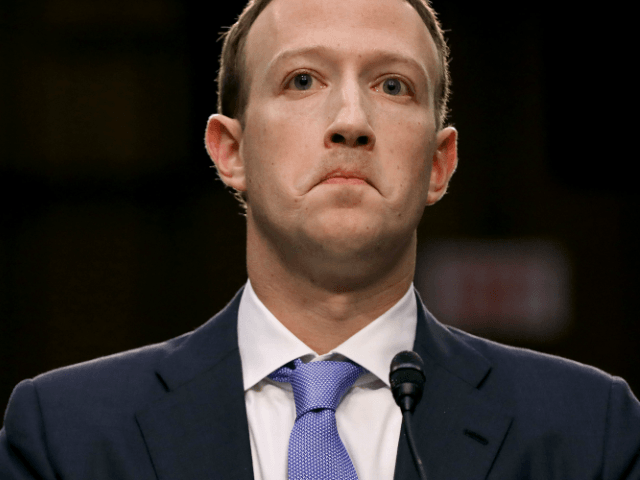After a federal judge overturned a Florida law that attempted to rein in the Big Tech Masters of the Universe, State Rep. Anthony Sabatini (R) says Big Tech companies should be regulated like common carriers in the Sunshine State, a categorization that would be difficult to shoot down in court.
Currently the state representative for FL-32, Rep. Sabatini is running for U.S. Congress in Florida’s 7th congressional district at the next election on an America First platform. His platform promises to crack down on big tech censorship, end illegal immigration, and ban biological men from girl’s sports.
Florida’s 7th district includes parts of northeastern Orlando and its exurbs, including the towns of Sanford, Oviedo, and Geneva.
Responding to this reporter’s op-ed for Breitbart News on the need for common carriage legislation to rein in the tech giants, Rep. Sabatini promised to introduce legislation to that effect when the Florida legislature returns to session.
I will be filing this Bill in the Florida House this year 👇
We must categorize tech companies as common carriers! https://t.co/5O3uBU39Nw
— Rep. Anthony Sabatini (@AnthonySabatini) July 2, 2021
“I will be filing this bill in the Florida House this year,” said Rep. Sabatini on Twitter. “We must categorize tech companies as common carriers!”
Regulating tech companies like common carriers is well within the jurisdiction of state governments and legislatures. The state of Texas already has proposed legislation that would do just that.
Common carriage legislation would follow recommendations recently made by U.S. Supreme Court Justice Clarence Thomas:
If part of the problem is private, concentrated control over online content and platforms available to the public, then part of the solution may be found in doctrines that limit the right of a private company to exclude. Historically, at least two legal doctrines limited a company’s right to exclude.
First, our legal system and its British predecessor have long subjected certain businesses, known as common carriers, to special regulations, including a general requirement to serve all comers. Candeub, Bargaining for Free Speech: Common Carriage, Network Neutrality, and Section 230, 22 Yale J. L. & Tech. 391, 398–403 (2020) (Candeub) see also Burdick, The Origin of the Peculiar Duties of Public Service Companies, Pt. 1, 11 Colum. L. Rev. 514 (1911).
Justifications for these regulations have varied. Some scholars have argued that common-carrier regulations are justified only when a carrier possesses substantial market power. Candeub 404. Others have said that no substantial market power is needed so long as the company holds itself out as open to the public. Ibid.; see also Ingate v. Christie, 3 Car. & K. 61, 63, 175 Eng. Rep. 463, 464 (N. P. 1850) (“[A] person [who] holds himself out to carry goods for everyone as a business . . . is a common carrier”).
And this Court long ago suggested that regulations like those placed on common carriers may be justified, even for industries not historically recognized as common carriers, when “a business, by circumstances and its nature, . . . rise[s] from private to be of public concern.” See German Alliance Ins. Co. v. Lewis, 233 U. S. 389, 411 (1914) (affirming state regulation of fire insurance rates). At that point, a company’s “property is but its instrument, the means of rendering the service which has become of public interest.” Id., at 408.
This latter definition of course is hardly helpful, for most things can be described as “of public interest.” But whatever may be said of other industries, there is clear historical precedent for regulating transportation and communications networks in a similar manner as traditional common carriers. Candeub 398–405. Telegraphs, for example, because they “resemble[d] railroad companies and other common carriers,” were “bound to serve all customers alike, without discrimination.” Primrose v. Western Union Telegraph Co., 154 U. S. 1, 14 (1894).
In exchange for regulating transportation and communication industries, governments—both State and Federal—have sometimes given common carriers special government favors. Candeub 402–407. For example, governments have tied restrictions on a carrier’s ability to reject clients to “immunity from certain types of suits”3 or to regulations that make it more difficult for other companies to compete with the carrier (such as franchise licenses). Ibid. By giving these companies special privileges, governments place them into a category distinct from other companies and closer to some functions, like the postal service, that the State has traditionally undertaken.
Second, governments have limited a company’s right to exclude when that company is a public accommodation. This concept—related to common-carrier law—applies to companies that hold themselves out to the public but do not “carry” freight, passengers, or communications. See, e.g., Civil Rights Cases, 109 U. S. 3, 41–43 (1883) (Harlan, J., dissenting) (discussing places of public amusement). It also applies regardless of the company’s market power. See, e.g., 78 Stat. 243, 42 U. S. C. §2000a(a).
Common carriage laws as a solution to tech censorship have also been praised by Prof. Adam Candeub, the legal expert who spearheaded President Trump’s last-minute efforts to rein in the tech giants.
Allum Bokhari is the senior technology correspondent at Breitbart News. He is the author of #DELETED: Big Tech’s Battle to Erase the Trump Movement and Steal The Election.

COMMENTS
Please let us know if you're having issues with commenting.